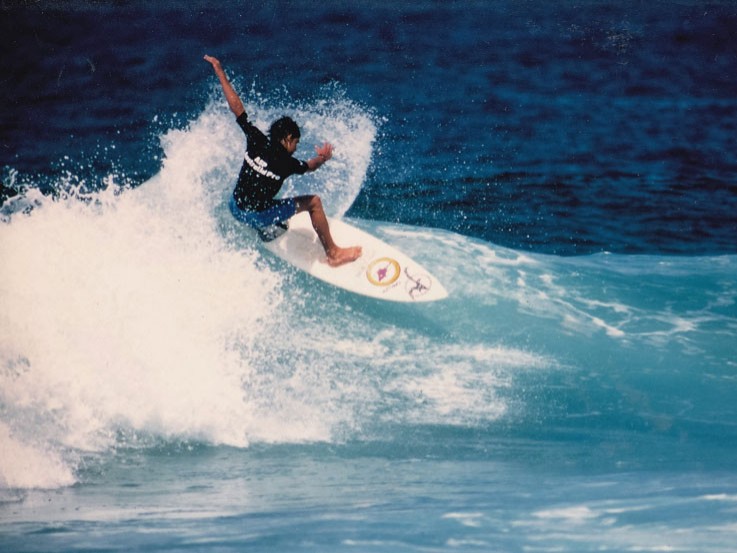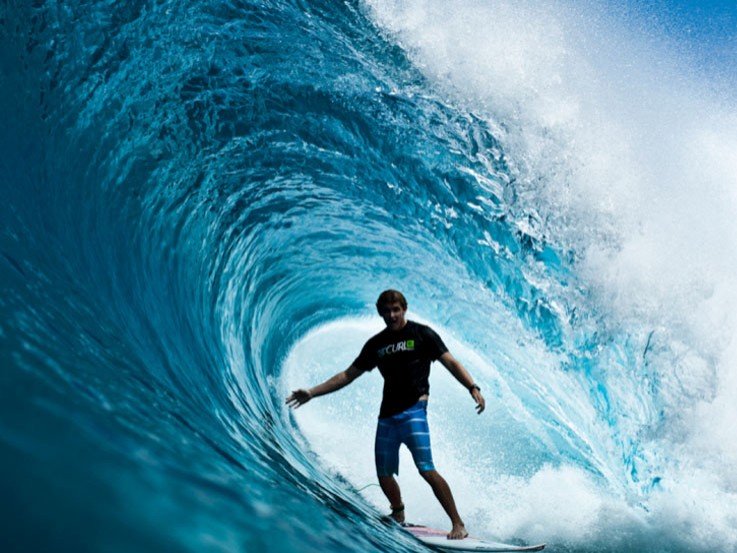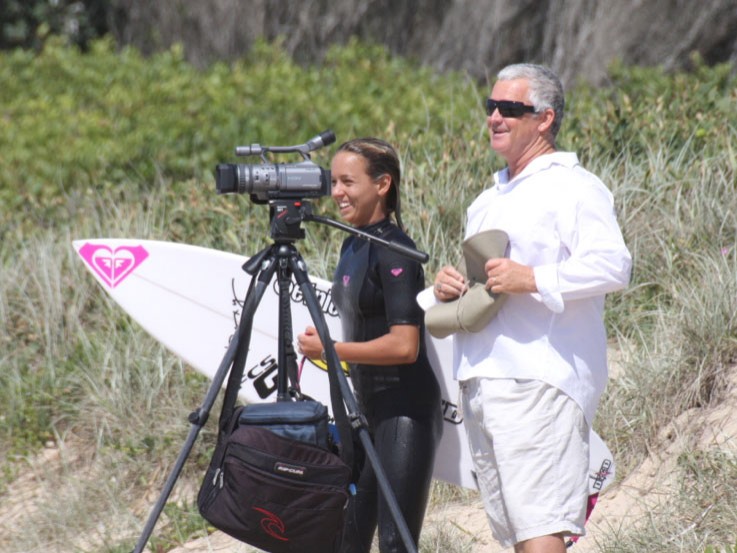Martin Dunn - Surf Coaching & Consultancy
When did you start surfing?
I started surfing at the age of 11-12, at Old Bar on the Mid North Coast of New South Wales
What was your first board?
My first board was a backyard board build by someone unknown. It had rounded rails on the bottom of the board and a perfectly flat deck. A real pig of a board. The only good thing to say about it was that it had lots of foam and paddled well.
What is that you love about surfing and the ocean?
Surfing and the ocean has three main attractions depending on the day - it can be lots of fun, can have a healing quality, and be enormously challenging. I think the daily challenge has been the main thing that has brought me back for all these years.
What is your favourite surf spot?
I love where I grew up at Old Bar, Wallabi, and Saltwater Point. Outside of there, I lived in Yamba many years ago and have always loved Angourie Point. The wave there is just so much fun to surf.
How did you become a surf coach?
I went to Southern Cross University at Lismore in Northern New South Wales as a mature age student in 1984 and studied Sport Science. When I finished my course I could have been a coach in the fitness industry, been a footy coach, or start to dabble in surfing. There was no coaching in surfing at the time (30 years ago), so to go down a surfing path was a really weird thing to do, and that was expressed to me often during those early years. But however, my major work at University was on the biomechanics of a forehand cutback, and I found the whole experience of looking deeply into surfing a fascinating and challenging exercise. And the more I worked with surfers, the more I loved taking that path for a career.
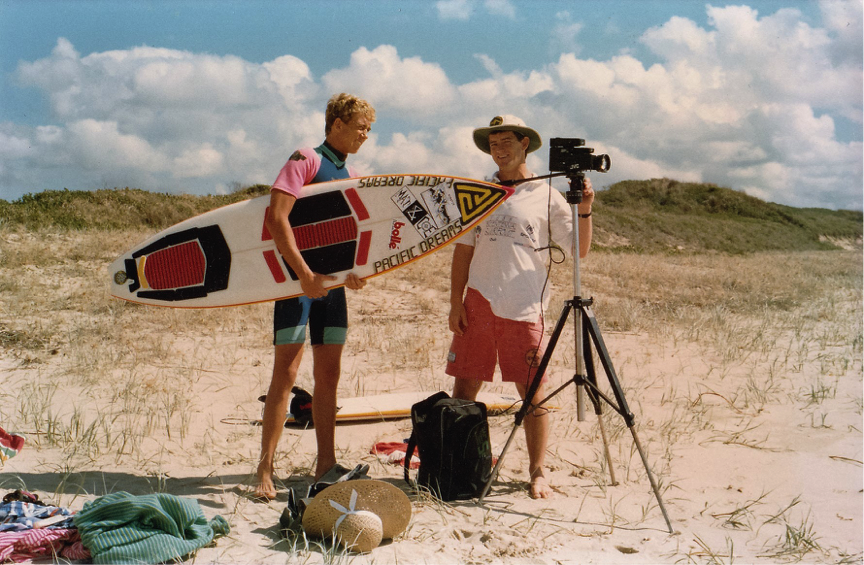
Working with 80’s Pro surfer Glenn Pringle of Cronulla
What were you doing before?
Lots of jobs – building, cooking, banking, and I was on Bob Hawke’s surf team for a few months. The reality was that I was obviously looking for something but I didn’t know what. A career in sport just suited me down to the ground in the end.
What is your approach to improving surfing?
I try to help surfers be successful on a daily basis. That is, paddling out, catching good waves, and confidently riding their waves with success. This sounds pretty simple when you read the words on the page, but there are so many complexities to doing this everyday and in all sorts of conditions. For example, when a surfer sits in the lineup waiting for a wave and the sets start rolling-in, a surfer has to make numerous decisions before they even catch a wave and start to perform manoeuvres on that wave.
Where do I paddle to? Which wave of the set do I want to try to catch? How hard do I need to paddle to catch the wave? And where on the peak do I want to try to take-off?
Its these type of subtle decisions and the correct approach for each situation faced when in the ocean that really makes the difference between having a good surf and one that should be forgotten.
Besides making good decisions, I spend a lot of time working with surfers on their technique. Surfing technique is the foundation of good surfing, and the more perfect a surfer can make it, the better the surfer they will become.
I don’t spend a lot of time doing competition training until a surfer is sufficiently skills in the technique and decision-making areas.
All areas of a performance can be improved, as long as the surfer is motivated to work on their performance.
What inspires you to train people in surfing?
I love seeing people improve from their efforts, and it’s exciting and challenging to work with talented surfers over many years.
What are your greatest challenges as a coach?
Helping individual surfers overcome sticking points in their development. Finding the key to unlock a skill, knowing that once unlocked, the surfer will move ahead in their development rapidly. It may be a technique change that they just can’t get, or a tactical approach when competing that they just can’t execute when under pressure. Whatever it is, as a surfer moves through a career, there are barriers that must be broken continually.
The other thing that is always difficult is consoling surfers after an important loss, but I have learnt that in every career “learning how to lose, is a big part of learning how to win” and all champions must go through this process as they go through their career.
Could you mention some of the highlights of your career?
> Creating my major work at university “The Biomechanics of a Forehand Cutback”. It set-up the desire to analyse and coach surfers.
> Working with thousands of surfers over the past 30 years. Each has tested and challenged me to individualise the training to suit each surfer’s developmental needs.

> Attending the Surfers Medical Conference at G-Land in Indonesia in 1991. This trip opened the door to coaching internationally, which I have been doing ever since in all areas of the surfing world.

Attendees at SMA conference – G-land, 1991
> Being invited to be an Australian coach at the world titles in Portugal in 1998. I have been Australia’s head coach on 10 occasions since with both Junior and Open teams.
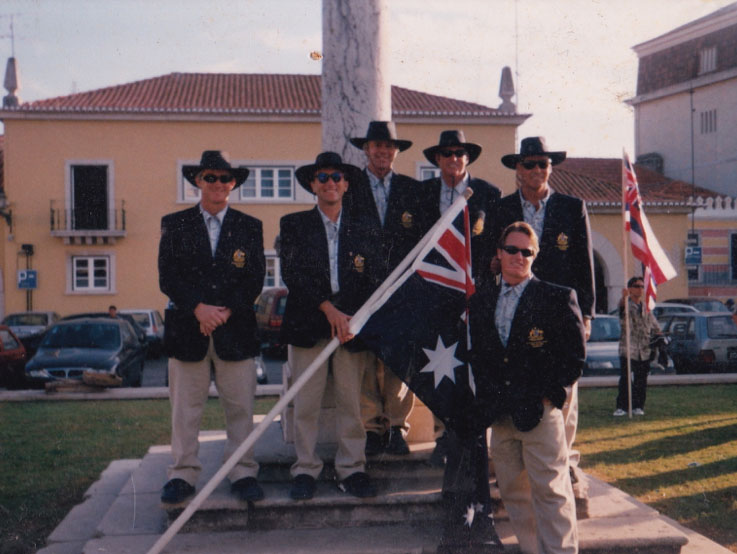
> Getting a call from former pro surfer Beau Emerton after he beat Kelly Slater in the US open at Huntington Beach some years ago. It was the biggest win of Beau’s career up that point, and to get a big thank you on that day for the work we had done together was just so special.
> Having my son Ben qualify for the World Championship Tour where he competed for 4 years against the very elite of world surfing.
> Creating the website Surfcoach.com where I could share my knowledge of how good surfing can be created. I have since sold the site to Surfing Australia, but I am stoked that so many surfers who I will never meet, have benefitted from the information the site contains.
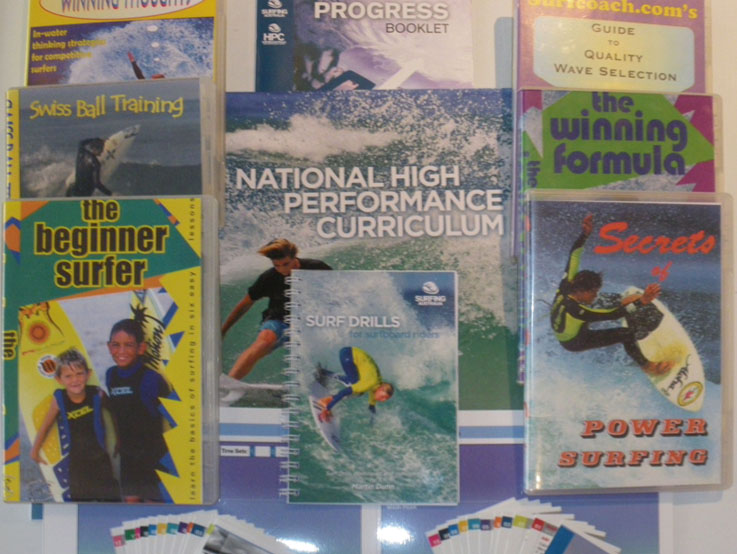
Your career has taken you to so many different experiences like taking part in coach development seminars, conferences, etc. Do you enjoy that part of your job too?
Yes I really do like to share the information I know works for surfers and coaches. I suppose that has come about by the journey I had when I started coaching surfers. There were no manuals, no videos, or publications of any sort that were specifically for training surfers. I have made every mistake you can when coaching surfers, so from my own experiences, if I can help others do a better job, learn coaching skills more quickly, then everyone benefits.
I have started to educate people online as well, with a number of online coaching courses aimed at surf coaches and parents being offered through my website. Check them out here
What advice would you give to anyone interested in getting involved in high-performance surfing?
As a surfer, get the basics right first before you start to push the performance aspect of the sport. The foundation movements and actions of bottom turns, re-entries, and finishes for example, are the building blocks of all aerial and progressive surfing. So you MUST get the basics right.
For coaches, read and study as much as possible about wha t works in our sport. And of most importance, learn to be patient with your surfers and their development. Improving performances, no matter the potential of a surfer, takes time – and for maximum improvements to occur, the surfer must feel that coach offers full support no matter how long it takes to achieve success.
Where can we find you online?
If people want to work with me, they can contact me through the site or simply send a video of their surfing for analysis and training recommendations. You can find more information on my video analysis service here
| Website | www.martindunn.com.au |
Posted by: Marta Gallardo, on July 14, 2016
Categories: Interviews
Latest Posts
Craig Sims - White Horses & Surfing Life Publisher
Luke Kennedy - Editor of Tracks Magazine
Simon ‘Swilly’ Williams - Surf Photographer
Jarra Campbell - the Bondi Alchemist
Greg Gordon - Owner of CR Surf
Shayne Nienaber - Surf Photographer
Alexa Hohenberg - Owner of Still Stoked
Christine Deveney - TapaReef Owner & Creator
Russell Ord - Surf Photographer
Richard Kotch - Surf Photographer
Categories
Interviews
Articles
Videos
Press Releases
Quiz
Archive
December 2018
November 2018
October 2018
September 2018
August 2018
July 2018
June 2018
May 2018
April 2018
March 2018
February 2018
January 2018
November 2017
January 2017
December 2016
November 2016
October 2016
September 2016
August 2016
July 2016
June 2016
May 2016
April 2016
March 2016
February 2016
January 2016
December 2015
November 2015
October 2015
September 2015
August 2015
July 2015
June 2015
May 2015
April 2015
March 2015
February 2015
January 2015
December 2014
November 2014
October 2014
September 2014
August 2014
July 2014
June 2014
May 2014
April 2014
March 2014
February 2014
January 2014
December 2013
November 2013
October 2013
September 2013
August 2013
July 2013
June 2013
May 2013
April 2013
March 2013

